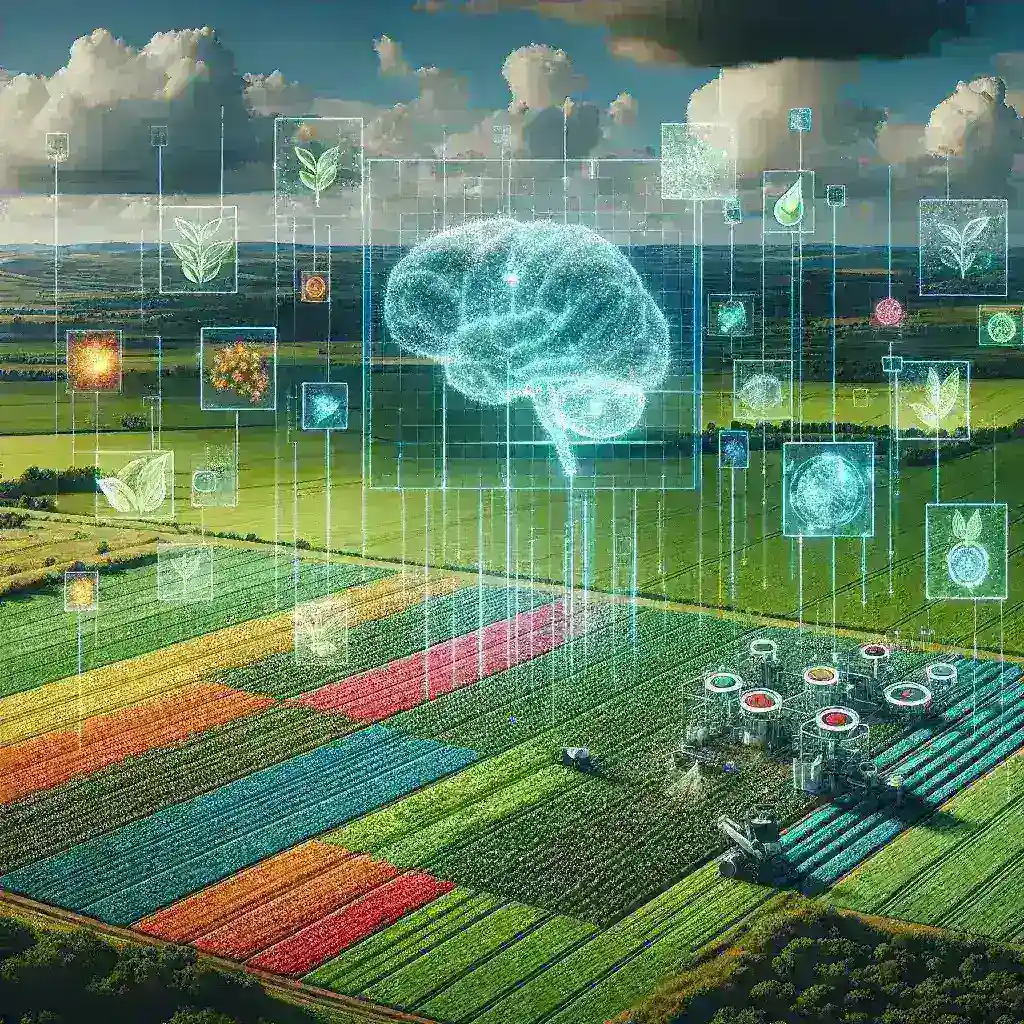Introduction
The intersection of artificial intelligence (AI) and agriculture is revolutionizing the way we approach crop nutrition. One of the most exciting advancements in this field is AI-powered soil microbiome analysis. This technology delves deep into the complex relationships between soil microbes and crops, optimizing nutrition, enhancing yield, and promoting sustainable farming practices.
Understanding Soil Microbiomes
Soil is a living ecosystem, teeming with microorganisms that play a critical role in plant health. The microbiome consists of bacteria, fungi, archaea, and other microbes that influence nutrient availability, disease resistance, and overall soil fertility. A healthy microbiome can enhance nutrient cycling, support plant growth, and improve soil structure.
The Role of Microbes in Crop Nutrition
Microorganisms in the soil contribute to crop nutrition in several ways:
- Nutrient Solubilization: Microbes break down organic matter and release essential nutrients like nitrogen, phosphorus, and potassium, making them available for plant uptake.
- Promotion of Plant Growth: Certain bacteria and fungi produce plant hormones that stimulate growth, root development, and flowering.
- Disease Suppression: Beneficial microbes can outcompete or inhibit harmful pathogens, reducing the need for chemical pesticides.
AI in Soil Microbiome Analysis
Artificial intelligence has the potential to analyze vast amounts of data generated by soil microbiome studies. By employing machine learning algorithms, researchers can identify patterns and correlations that would be impossible to discern manually. This analysis allows for targeted recommendations to optimize crop nutrition.
Benefits of AI-Powered Analysis
The integration of AI in soil microbiome analysis offers several benefits:
- Precision Agriculture: Farmers can receive tailored advice on nutrient management based on the specific microbial community present in their soil.
- Real-time Monitoring: AI can enable continuous monitoring of soil health, allowing for timely interventions and adjustments to farming practices.
- Informed Decision Making: With improved data interpretation, farmers can make better decisions regarding crop selection, fertilization, and pest management.
Historical Context and Evolution
The concept of soil microbiomes is not new; however, the technology to analyze them has advanced significantly. Historically, farmers relied on trial and error and traditional soil testing methods, which often provided limited insights. The advent of DNA sequencing technologies and bioinformatics tools has opened new avenues for understanding soil ecosystems. Today, AI is the frontier that is pushing these discoveries further.
Future Predictions
Looking ahead, the role of AI in agriculture is poised to expand. We can expect:
- Greater Integration: AI will become more integrated with other agricultural technologies, such as IoT devices, to create a comprehensive system for managing crop health.
- Wider Adoption: More farmers, regardless of scale, will adopt AI-powered solutions as they become more accessible and affordable.
- Sustainability Focus: As global agricultural practices shift toward sustainability, AI will help optimize resource use, reducing waste and environmental impact.
Challenges and Considerations
While the benefits of AI-powered soil microbiome analysis are significant, challenges remain:
- Data Quality: The effectiveness of AI depends on the quality and quantity of data. Inconsistent or incomplete datasets can lead to inaccurate recommendations.
- Implementation Costs: The initial investment for advanced technology may be a barrier for some farmers, particularly in developing regions.
- Education and Training: Farmers must be educated on how to interpret AI-generated data and implement recommendations effectively.
Real-World Examples
Several organizations and companies are currently utilizing AI-powered soil microbiome analysis:
- Startups and Innovations: Companies like Microbe Technologies are harnessing AI to analyze soil samples and provide farmers with actionable insights.
- Research Institutions: Universities worldwide are conducting studies that combine AI with microbiome research, paving the way for future advancements in agricultural science.
Cultural Relevance and Global Impact
As the global population continues to grow, the demand for food production will increase. AI-powered soil microbiome analysis stands at the forefront of addressing these challenges. By optimizing crop nutrition, it not only enhances agricultural productivity but also contributes to food security and sustainability efforts worldwide.
Statistics and Expert Insights
According to recent studies, optimizing soil health through microbiome analysis can lead to an increase of up to 30% in crop yields in certain conditions. Experts emphasize that integrating microbiome research with AI technology is essential for modern agriculture’s future.
Conclusion
AI-powered soil microbiome analysis represents a significant leap forward in optimizing crop nutrition. It offers a pathway to sustainable agriculture, enabling farmers to make informed decisions that benefit both their crops and the environment. As technology continues to advance, embracing these innovations will be crucial for the future of food security and agricultural sustainability.
Call to Action
Farmers, researchers, and agricultural stakeholders should consider investing in AI-powered microbiome analysis to unlock the full potential of their soils and enhance crop nutrition. Together, we can pave the way for a more sustainable agricultural future.

